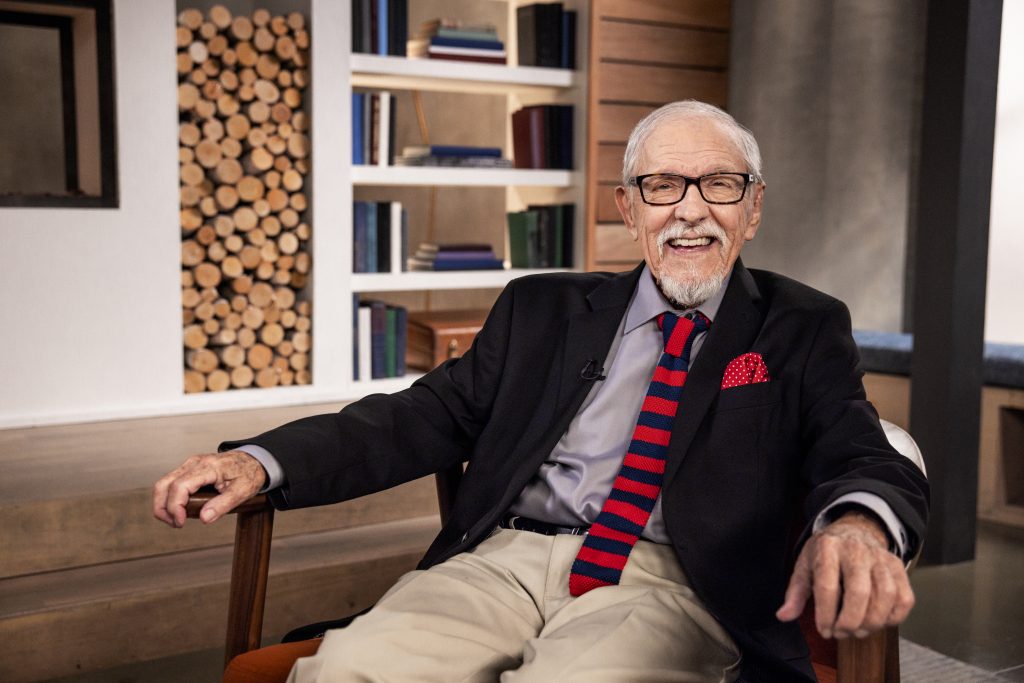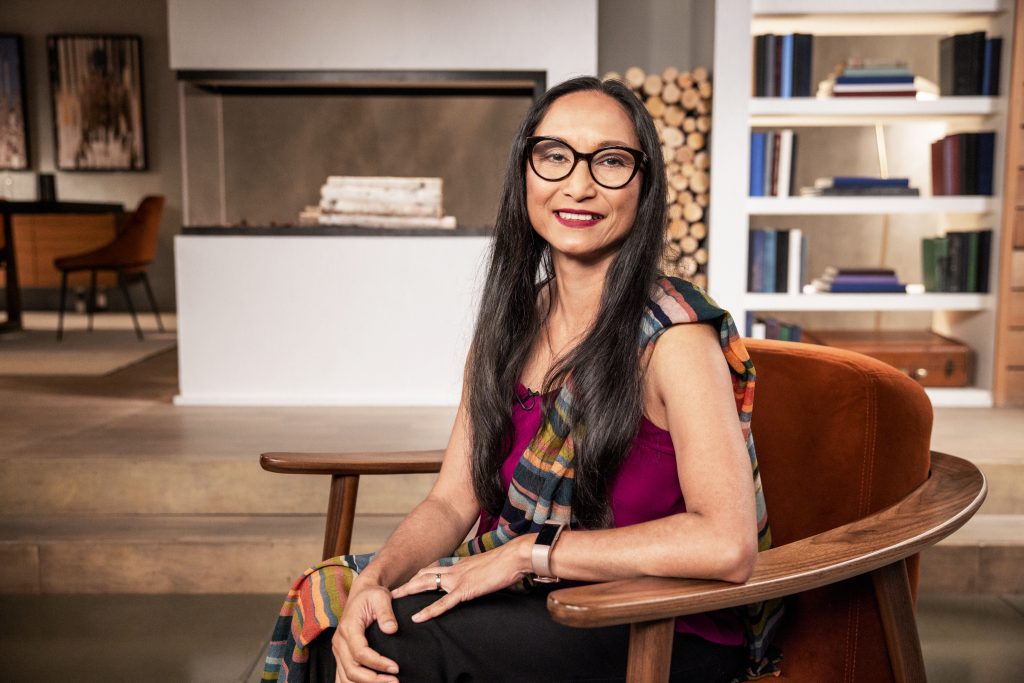The Idea of America: TCM September 23 Guest Hosts
This September, Turner Classic Movies (TCM) shines a light on The Idea of America, highlighting immigrants’ perceptions of The United States of America and what it means to be American, through the lens of the American movies they watched when they were young. Nine immigrants join TCM Primetime Host Ben Mankiewicz to discuss the movies that shaped their idea of the U.S. before they moved here. They explore where perception and reality aligned, and what has surprised them about life in America.
Classic Couple posed questions to the guest programmers. Their responses follow.

AIRING AT 8 PM ET SATURDAY, SEPTEMBER 23, 2022
Ted Ayllón
Film: Higher and Higher (1943)
Home Country: Bolivia
Current Residence: Atlanta, GA

Ted Ayllón came to the US from Bolivia in 1950 on scholarship to attend college at Wesleyan University in Connecticut. Ultimately, he received his Ph.D in Psychology. He taught at the university level for 30 years. Additionally, he did 10 years of behavioral research focused on schizophrenic patients, creating a program known was The Token Economy, still used in institutions to motivate and reward patient behaviors.
Ted picked the film Higher and Higher (1943) to introduce on TCM, where Sinatra is featured as himself. Ted says that it was easier to understand English when Sinatra was singing it. He was a teen in Bolivia at the time and had very little exposure to English so the movies were a place for him to learn, as well as have fun.
Classic Couple: What is it about Higher and Higher (1943) as a musical that stands out for you?
It’s the singer, Frank Sinatra, who carries it in a very melodic, very romantic kind of thing at the time. Actually, that particular genre of music just released in South America was just new. Because there’s a different kind of genre. And also, it’s romantic. But it’s not the same kind of tones, if you will, the same music.
Classic Couple: How did the music of Frank Sinatra impact your life?
I think it did in a sense that when I came to the states, I was completely aware of what he was doing. And I followed him, I bought every single record that I actually was able to, and have a collection because of that. I have the CDs, and I have the original long playing records. I have all the things to do with him, books as well.
Classic Couple: Why do you feel classic movies are important in helping immigrants adjust to American life?
Well, I think that you do have kind of an entry into the meaning that you can really have dreams. Some people who basically see these movies, as an immigrant, see an easier way of being allowed, if you will, to have your dreams. They give you a sort of an opening that you could do anything, you could do all kinds of interesting and marvelous things and could be just about anything. Once that I was in the United States, I realized that for myself.
AIRING AT 10 PM ET SATURDAY, SEPTEMBER 23, 2022
Abdi Iftin
Film: Badlands (1973)
Hometown: Mogadishu, Somalia
Current Residence: Portland, ME

Abdi Iftin was born in Mogadishu, Somalia, and learned English from watching American action films. In his memoir Call Me American, Iftin recounts his harrowing, extraordinary, and uplifting story. His love of western culture and music earned him the name “Abdi American.” This became a liability when Islamic extremism took hold of Somalia. Evading conscription by al-Shabaab while secretly filing stories for NPR under penalty of death, he stayed in Somalia until he had no choice but to flee. He smuggled himself into Kenya, where a different but griding life of hopelessness awaited. He spent days hiding silently in an apartment from raids by Kenyan police, passing time reading memoirs and watching more movies. In an incredible stroke of luck, he won the Diversity Visa Lottery to the United States and moved to Portland, Maine. His story was also the subject of a very popular episode of This American Life.
Abdi is introducing Badlands (1973). As a kid in Somalia, he imagined the U.S. landscape looked very similar to Somalia’s based on this movie: dry, windy, and lots of gun shooting.
Classic Couple: Why is Badlands (1973) a favorite film for you?
Badlands introduced me to a world beyond Somalia when I was just 12 and have not even learned the world map. Somalia was going through a brutal war and a famine that forced the world to intervene including U.S marines. Badlands opened my eyes to the distant landscape that can be violent but can have justice and a meaning. This movie kept me hopeful that someday Somalia’s war will end like Badlands ended—with justice served. I never really knew what exactly war meant versus governance and government, I remember discussing with my friends as kids that there is a system beyond war, and that system is called “peace.”
Classic Couple: What about the genre of action films resonated with you growing up?
There were not many choices of genres for me to see. For example, there were no children’s movies, or cartoon, or Disney, none. I was exposed to violent movies at a young age such as Badlands, but it also made me a better person because it is movies like Badlands that motivated me to learn English to speak like them.
Classic Couple: How has the reality of American life compared for you to the portrayal of American life on film?
America is a massive country. I always thought that the United States was as small and homogeneous as Somalia was. The reality is different, there are Americans who have not seen Badlands which surprised but also shocked me when I got here. I expected every American to have seen every American movie. In some ways I have felt a better American since I had watched American movies with a different purpose, of love, respect and curiosity for this nation.
AIRING AT 12 AM ET SATURDAY, SEPTEMBER 24, 2022
Sushma Barakoti
Film: To Kill a Mockingbird (1962)
Home Country: Nepal
Current Residence: Atlanta, GA

Sushma Barakoti was born in Nepal and dreamed for years of moving to the United States to pursue an American education. She was enchanted by the rural, beautiful scenery she saw in American films growing up, and when her husband was relocated to Scranton, PA, for work, she fell in love with the landscape that felt familiar and comforting based on those movies.
Upon arrival to the States, she earned her master’s degree in social work from Marywood University and began her family. Sushma now lives in Atlanta, GA, and is the executive director of Refugee Women’s Network, a nonprofit dedicated to serving refugees who have resettled in the state of Georgia. She also founded Sunavworld, a social enterprise with the mission of promoting sustainable, fairly-traded local and global gifts promoting social justice through the socioeconomic empowerment of artists and artisans, especially women.
Sushma will be introducing To Kill a Mockingbird (1962), a film that inspired her work in social justice.
Classic Couple: You have picked the movie portrayal of what many consider the greatest American novel. What about To Kill a Mockingbird (1962) says America to you?
It says to me that America is a complex country. In one hand it is a functioning democratic country with rules and laws where no tolerance for racism and discrimination but living the consequences of systemic racism and and discrimination in daily lives. But again this movie portrays humanity and pursuit for justice. The relationship with black American and Whites, the nanny for Aticus’ children is a great portal of what was possible in America during the 50-60s.
Classic Couple: Which character’s storyline in the film resonates with you the most?
Of course Atticus’ storyline resonated with me the most. He was 100% committed to social justice and worked for it wholeheartedly. His passion and dedication to justice was so strong that he inspired his children and specially his daughter Scout. As a lawyer not only he fought for justice but embodied respect and dignity to all people.
Classic Couple: What Kollywood film do you wish most Americans would watch to understand Nepali culture?
The last Nepali movie that I watched in 2015 when I was visting Nepal I went to see a movie called Jhola with my sister-in-law. It is about Sati culture that was prevalent in the Nepalese society until the 1920s in which wife had to immolate herself upon her husband’s death, typically on his funeral pyre. It shows the root of patriarchy in Nepali and Indian (Hindu) culture.
